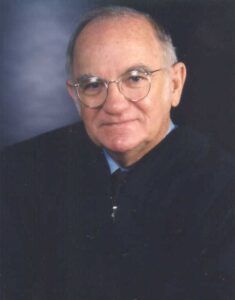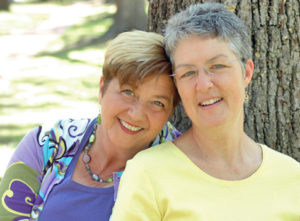Memorials are generally limited to Section founders, Judge Norman W. Black Award recipients, and Section chairs.
Judge Jerry L. Buchmeyer
The Hon. Jerry L. Buchmeyer, a senior judge on the United States District Court for the Northern District of Texas, died on September 5, 2003. Judge Buchmeyer was appointed by President Jimmy Carter in 1979.
In 1992 Judge Buchmeyer declared Penal Code section 21.06 to be unconstitutional, writing "However, § 21.06 does not concern rape, sexual abuse by force, offenses involving minors, or sexual conduct in public. Nor does it prohibit sodomy between a husband and wife or between an unmarried male and female. Instead, it condemns only homosexual conduct done in private between consenting adults. Accordingly, it is unconstitutional because it violates both the fundamental right of privacy and the right to equal protection of the laws guaranteed to the plaintiff (and other homosexuals) by the United States Constitution." While the State of Texas dismissed its appeal, the United States Court of Appeals for the Fifth Circuit allowed the Potter County District Attorney and Dallas Doctors Against AIDS to appeal on behalf of the state, resulting in a reversal by the en banc Fifth Circuit. The Supreme Court of the United States denied review after issuing its opinion in Bowers v. Hardwick. Baker v. Wade, 553 F. Supp. 1121 (N.D. Tex. 1982), rev'd, 769 F.2nd 289 (5th Cir. 1985) (en banc), cert denied, 478 US 1022 (1986).
In 2010 the LGBTQ+ Law Section posthumously recognized Judge Buchmeyer with the Judge Norman W. Black Award.
Connie Moore
(Connie Moore and Debbie Hunt)
The LGBTQ+ Law Section of the State Bar of Texas lost a great lawyer and one of its Founders when our friend Connie Moore died on August 24, 2015 at her home in Galveston.
Connie graduated from the University of Houston Law Center in 1986, where she met her life and law partner Debbie Hunt. Moore & Hunt, their Houston law firm, was an early fixture in the Houston’s emerging LGBTQ+ legal scene and the site of many meetings and parties for the Bar Association for Human Rights of Greater Houston (known as BAHR and now renamed as the Stonewall Law Association of Greater Houston).
Connie was BAHR’s 1996–1997 president when, at the suggestion of Pat Wiseman, the lead attorney in the 1990s state-law challenge to the Texas homosexual conduct statute, a petition was circulated to form a Gay and Lesbian Issues Section of the State Bar of Texas. More than fifty lawyers signed the petition, and on October 4, 1996 Connie, past BAHR president Mitchell Katine, and BAHR director Charles Spain went to Fort Worth to present the petition to the State Bar board of directors. In her speech to the board, Connie spoke movingly about families and the need for lawyers to effectively represent LGBTQ+ clients in divorce, child-custody, and similar cases.
Despite the trio’s lobbying and advocacy, the board of directors narrowly defeated the measure. Adding to the loss’s sting was a parade of directors who voted against the proposed Section, assuring the trio that the rationale was not anti-gay, but instead motivated by the fact that the issues could be “better represented within the existing Individual Rights and Responsibilities Section.” As Pat Wiseman was a key leader in the IRR Section, those comments rang quite hollow.
But as Connie knew, you just can’t quit. And sometimes the unexpected happens. Norman W. Black, the chief judge of the United States District Court for the Southern District of Texas, approached the trio before they left Fort Worth and told them he was disappointed in the board’s vote and that they had to keep trying. And he went further, addressing the board later that day and speaking to the media: “I’ve always learned a lot about my fellow members from these meetings. . . . Today’s the first time I wasn’t real proud.” It proved another thing Connie knew, you never know who your friends and allies might be.
On April 8, 1997, BAHR held its annual meeting at Moore & Hunt. One of Connie’s last acts as outgoing president was to recognize Judge Black with a plaque for his role as an outspoken guardian of human rights. Judge Black told the BAHR members of his vocal criticism of the board of directors and exhorted them to continue the fight for an LGBT law section, concluding with the words of Winston Churchill, “Never give up.” Sadly, Judge Black died later that year. But Connie and others didn’t give up, and the State Bar board of directors voted on April 17, 1998 to approve the creation of the Sexual Orientation and Gender Identification Issues Section, which was transgender inclusive due to the work of Phyllis Frye. The Section is now known as the LGBTQ+ Law Section and is first such section of any unified bar in the Unites States.
The LGBTQ+ Law Section later recognized Connie as a Founder, along with Frye, Katine, Spain, and Anne Pike. In 2012 Connie received the Section’s highest honor, the Judge Norman W. Black Award, which is given to a past or present member of the State Bar of Texas for a significant contribution to lesbian, gay, bisexual, transgender, and queer legal issues.
Connie’s place in LGBTQ+ history and as a lawyer and friend to so many of us is fodder for many great stories, and her fellow traveler was always her law partner and wife, Debbie. But for us in the LGBTQ+ Law Section, regardless of whatever else Connie did, on October 4, 1996 she was in Fort Worth, she spoke up, and-as Judge Black exhorted, she never gave up.
Neither should we.
Chief Justice Paul C. Murphy III
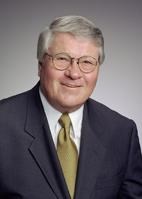
The Hon. Paul C. Murphy III, a retired chief justice on the Court of Appeals for the Fourteenth District of Texas, died on February 26, 2018.
Chief Justice Murphy and Justice John Anderson held Penal Code section 21.06 (“homosexual conduct”) to be unconstitutional as the statute violated the Texas Equal Rights Amendment, resulting in the reversal of the convictions of John Geddes Lawrence and Tyron Garner and rendition of judgments of acquittal. The en banc Fourteenth Court affirmed the convictions, the Court of Criminal Appeals of Texas refused review, and the Supreme Court of the United States reversed and acquitted on federal constitutional grounds. Lawrence v. State, Nos. 14-99-00109-CR & 14-99-00111-CR (Tex. App.—Houston [14th Dist.] June 8, 2000), judgments withdrawn & judgments of conviction affirmed, 41 S.W. 3d 349 (Tex. App.—Houston [14th Dist.] 2001, pet. ref’d) (en banc), rev’d, 539 U.S. 558 (2003).
A week after the original panel opinion issued in 2000, the Republican Party of Texas criticized Murphy and Anderson in its platform, urged party members to oppose their re-election, and issued a “public rebuke” of the two judges.
For his courage in following the law, Chief Justice Murphy, along with Justice Anderson, received the 2004 Judge Norman W. Black Award from the LGBTQ+ Law Section.
Hon. John P. Loza
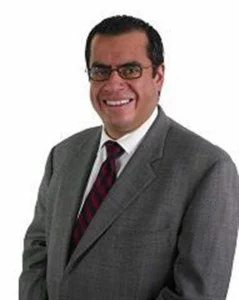
The Hon. John P. Loza, former City of Dallas mayor pro tem, died on June 19, 2018.
Council Member Loza drafted and was successful in Dallas city council passing a 2002 amendment to its nondiscrimination ordinance to include citywide protection against discrimination based on sexual orientation and gender identity. Loza also served on the board of Prism Health North Texas, then known as AIDS Arms, from 2005-2012 and was board chair from 2011-2012.
The LGBTQ+ Section twice recognized Council Member Loza with the Judge Norman W. Black Award, first in 2005 and posthumously in 2020.
Justice John Sharp Anderson
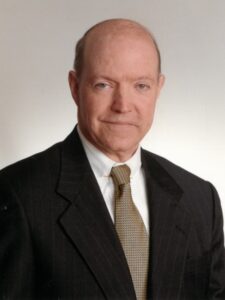
The Hon. John Sharp Anderson, a retired justice on the Court of Appeals for the Fourteenth District of Texas, died on June 22, 2021.
Justice Anderson was the author of the panel opinion and judgments in which he and Chief Justice Paul Murphy held Penal Code section 21.06 (“homosexual conduct”) to be unconstitutional as the statute violated the Texas Equal Rights Amendment, resulting in the reversal of the convictions of John Geddes Lawrence and Tyron Garner and rendition of judgments of acquittal. The en banc Fourteenth Court affirmed the convictions, the Court of Criminal Appeals of Texas refused review, and the Supreme Court of the United States reversed and acquitted on federal constitutional grounds. Lawrence v. State, Nos. 14-99-00109-CR & 14-99-00111-CR (Tex. App.—Houston [14th Dist.] June 8, 2000), judgments withdrawn & judgments of conviction affirmed, 41 S.W. 3d 349 (Tex. App.—Houston [14th Dist.] 2001, pet. ref’d) (en banc), rev’d, 539 U.S. 558 (2003).
A week after the original panel opinion issued in 2000, the Republican Party of Texas criticized Murphy and Anderson in its platform, urged party members to oppose their re-election, and issued a “public rebuke” of the two judges.
For his courage in following the law, Justice Anderson, along with Chief Justice Murphy, received the 2004 Judge Norman W. Black Award from the LGBTQ+ Law Section.

